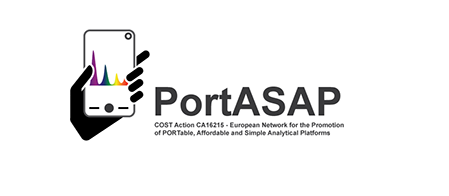MoU Objectives
| Category | Objective |
| Challenge | Develop and promote low-cost instruments and open-source hardware (OSH) capable of sensitive chemical analysis in specific areas and applications where the use of complex laboratory-based instrumentation is not the desired option |
| Research Coordination 1 | To coordinate intersectoral, international and interdisciplinary studies in complex environments to test and validate OSH tools. This objective will involve citizen science initiatives (i.e. water quality in the The Venetian Lagoon and Irish loughs). |
| Research Coordination 2 | To provide detailed reports on existing open-source hardware and their field of application and assess their limitations. this will be done by maintaining a database of open-source hardware, to present and demonstrate their fabrication (video tutorials) and to validate each instrument with interlaboratory studies. |
| Research Coordination 3 | To identify the areas in need of significant scientific or technologic advancement. |
| Research Coordination 4 | To stimulate the creation of new open-source hardware relevant to chemical analysis. |
| Capacity Building 1 | To become a recognised Pan-European platform at the crossroads of SMEs, end-users, multidisciplinary analytical scientists, engineers and instrument manufacturers. |
| Capacity Building 2 | To encourage research facilities and SMEs to use open-source hardware. |
| Capacity Building 3 | To structure and develop small consortia able to apply or develop OSH via public-private partnerships and research and development proposals (H2020), leveraging further funds to build upon PortASAP initial objectives. |
| Capacity Building 4 | To attract and facilitate the mobility and the multidisciplinary training among the different protagonists of the Action, during which attention will be drawn to maximise the benefits for all participants. |
Grant Period Goals (GP1: 01/11/2017 – 30/04/2018)
|
# |
Description |
|
1 |
To motivate Action participants in
developing simple mobile phone-based spectrometers as Master projects. Design
already exists as Open Source Hardware (www.publiclab.org/wiki/smartphone-spectrometer,
www.spectralworkbench.org, www.publiclab.org/wiki/smartphone-spectrometer) |
|
2 |
To discuss the necessary
architecture for an open data format allowing to share resulting spectra. |
|
3 |
To promote the portASAP
Action in an EU context. |
|
4 |
To train portASAP
members in DIY chemical instrumentation and promote OSH in Universities and
research facilities. |
|
5 |
To discuss and design simple
sample treatment approaches that do not require expensive and/or toxic
chemicals and may form the backbone for a new OSH. |
|
6 |
To promote intersectoral and
interdisciplinary collaborations within the COST Action. |

.png?crc=4271212285)